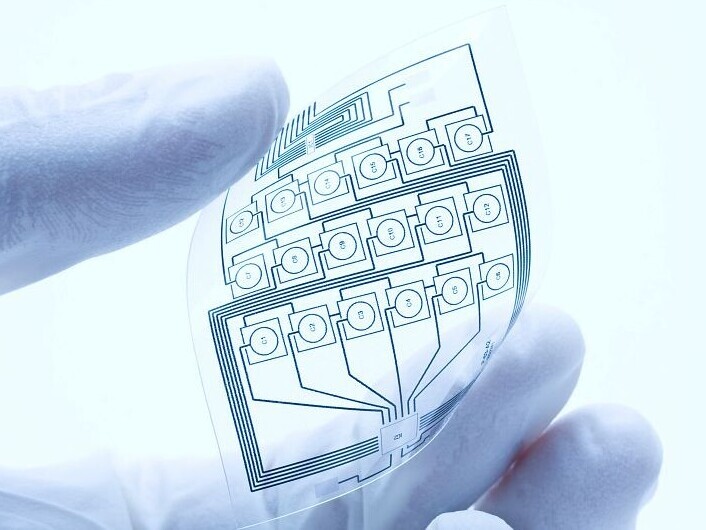Electronics and electrical
A multi-product offering for electric cable manufacture
Cable manufacturers today face new requirements in terms of safety (fire resistance), sturdiness (stability) and durability (mechanical strength). Our products provide the right solutions to these issues and are used to manufacture low, medium, high and extra-high voltage power cables.
- Our Kynar® and Kynar Flex® polyvinylidene fluoride (PVDF) grades are particularly suitable to demanding applications such as safety cables thanks to their outstanding chemical stability and mechanical strength.
- Our Rilsan® polyamide resins rank among those rare materials that withstand termite attack. These materials are greatly valued by manufacturers of underground electric cables.
Explore Rilsan® polyamide resins
Our solutions for mobiles and tablets
Screen performance & durability
The Sarbox® acrylate resins from our subsidiary Sartomer enable a higher quality of image on touchscreens (optimum diffusion of light and colors, sharpness) and more flexible design ( foldable, flexible, thinner ) for smart phone, tablet, TV and wearable products. They are used to manufacture high performance adhesives proving desirable bonding for various layers making up these screens. The Sarbox® acrylate resins feature key characteristics: excellent durability, perfect transparency, protection against yellowing, tunable toughness and flexibility. The Sarbox® acrylate resin are also used as the solution of protective coatings for different kinds of cover lens of consumer electronics , which are made of various substrates like glass, ceramics and glass. The Sarbox® acrylate range contribute to good scratch and abrasion resistance, excellent transparency and desirable adhesion.
Lightweight & sturdiness
Our Rilsan® polyamides range is in great demand with the major telephone brands: they are among the rare materials on the market to combine chemical resistance and impact resistance, precision of components, light weight, and gloss. It is lighter than the widely used polycarbonate and aluminum, and has been adopted by manufacturers for the design of particularly strong inner frame shells, as well as profiled.
Lithium-ion batteries
Lithium-ion batteries represent a further area of excellence for Arkema.
Temperature variations and repeated charge/discharge cycles damage these batteries: the active particles no longer adhere to the electrodes, thereby reducing battery life and causing the phone to shut down. To remedy this weakness, our Kynar® PVDF is used by manufacturers to bind the active particles onto the electrodes: its outstanding resistance to the corrosiveness of the electrolyte helps extend the operating life of batteries.
Kynar® PVDF is also used in the coating of the separator between the two electrodes, which helps extend the battery’s lifetime.
Our fluorination expertise for electronics
Arkema, fluorospecialties expert
As a leading fluorine specialist, Arkema provides fluoro-specialties development and production to key partners where fluorine makes a difference. The Foranext® range leverages our fluorination expertise to create fluorogases used in a variety of electronic and semiconductor applications from plasma etching to chamber cleaning and more.
Moving to silicon-free, organic electronics
Committed to the electronics of the future
As a result of the continuing miniaturization of silicon chips, microelectronics based on optical lithography – the engraving technology for microprocessors – is facing the physical limits of silicon as a material. To move beyond these constraints related to the world of the infinitesimally small, the Arkema Group is developing technology for polymer self-assembled (or nanostructured) lithography. This highly promising alternative requires low production costs and is easily integrated into existing manufacturing processes for microprocessors.
Thanks to its wide range of technical polymers (fluorinated, piezoelectric, thermoplastic and nanostructured), the Arkema Group is dedicating significant resources to large area printed electronics (flexible screens, smart packaging and textiles, photovoltaic panels).
The aims of this initiative are to: extend system lifespans, optimize production costs, and integrate several functions on the same support.The use of these organic materials, rather than silicon, makes it possible to design a whole new field of printable, transparent and flexible components.
Our specific offering for other industries:
- Agriculture & food industry
- Chemical & plastic industry
- Cooling & refrigeration
- Health, hygiene & beauty
- Mining & metallurgy
- Packaging
- Pulp & paper
- Water management
- Automotive, transportation & aerospace
- Coatings & inks
- Building & construction
- Renewable energy & energy storage
- Adhesives & sealants
- Electrical & electronics
- Oil & gas
- Composites
- Sport & leisure
- 3D printing




